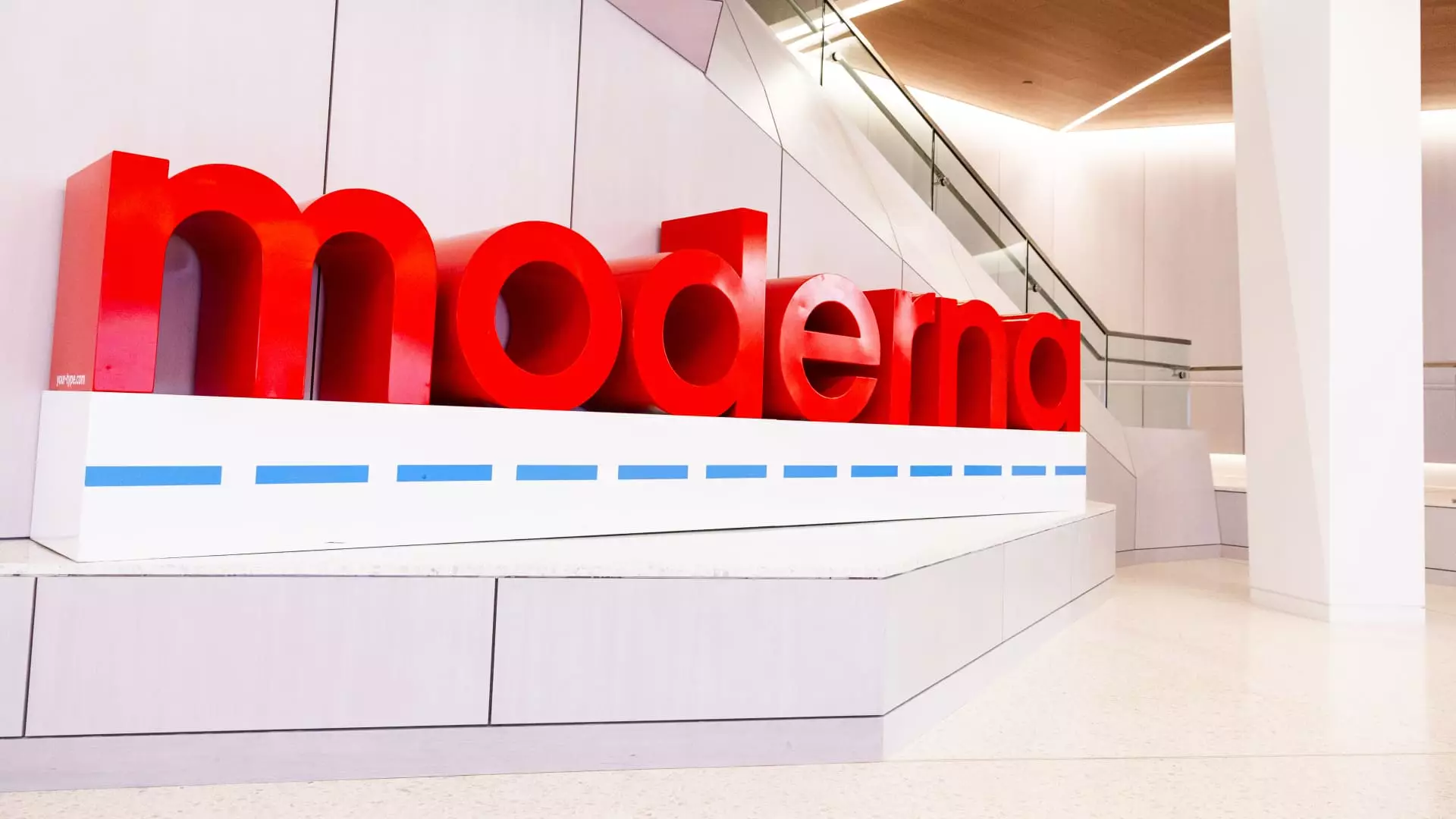In a notable turnaround, Moderna surprised investors with a profit in its third quarter, signaling potential resilience in its operations despite the backdrop of a declining Covid vaccine market. The company reported a net income of $13 million, equating to earnings of 3 cents per share, a stark contrast to the staggering net loss of $3.63 billion, or $9.53 per share, from the same period the previous year. This drastic shift underscores the effectiveness of the cost-cutting initiatives and operational adjustments implemented by the biotech firm as it attempts to stabilize after the exponential growth phase witnessed during the pandemic.
Moderna’s ability to outperform Wall Street’s expectations, which forecasted a loss of $1.90 per share, allows the company to reclaim some investor confidence amidst ongoing scrutiny about its future direction post-Covid. The reported revenue of $1.86 billion also exceeded expectations of $1.25 billion, highlighting a remarkable turnaround in not just profitability metrics, but also sales performance.
Cost-Cutting and Future Aspirations
A significant aspect contributing to this unexpectedly positive financial quarter is Moderna’s strategic emphasis on expense reduction. The company has set an ambitious target to curtail costs by $1.1 billion by 2027, a move that reflects a more prudent management approach in light of shifting market dynamics. This financial discipline is essential as the demand for its Covid vaccine wanes, and Moderna seeks to transition into new therapeutic areas.
The introduction of the respiratory syncytial virus (RSV) vaccine marks a pivotal moment for Moderna, as it diversifies its portfolio beyond Covid-related products. However, while this new offering appears promising, early sales figures of $10 million from the RSV vaccine fell short of the anticipated $132 million, attributed to timing issues related to regulatory approval and the contracting cycle for vaccine distributors. As Moderna prepares for further approvals, including an innovative combined vaccine for Covid and flu, the future will hinge on both market reception and the effectiveness of its upcoming products.
Supply Chain Efficacy and Dispatch Performance
Moderna’s adeptness in supply chain management has also played a critical role in its recent financial outcomes. The company noted that the earlier rollout of its latest Covid vaccine enabled it to meet demand more effectively; it shipped double the global product quantities compared to the initial launch in 2023. By reducing bottlenecks and enhancing logistics, Moderna maximized the opportunity to capitalize on its operational capabilities. CEO Stéphane Bancel’s insights highlight the importance of these efficiencies in driving high sales figures, which may lay the groundwork for sustained performance amid ongoing market changes.
Moreover, the company’s overall revenue from the Covid vaccine accounted for a substantial portion of its sales, with $1.2 billion emanating from U.S. markets and about $600 million internationally. Such figures highlight the biotech’s established market presence, even as the landscape becomes increasingly competitive, with newer players and various respiratory vaccines entering the scene.
Despite the recent profit, investor sentiment regarding Moderna remains cautious, with the stock price dropping almost 50% this year. This decline illustrates a broader apprehension about the firm’s capacity to sustain revenue streams once the pandemic-induced surge subsides. Nevertheless, Moderna’s commitment to leveraging its messenger RNA technology platform across diverse therapeutic areas—including flu vaccines, personalized cancer treatments, and latent viruses—has positioned it favorably for long-term growth.
Furthermore, with 45 products currently in development and an ambitious goal to bring 10 of them to market within three years, Moderna’s innovative pipeline could serve as a buffer against market volatility. The company’s focus on cutting research and development expenses—down by 2% to $1.1 billion this quarter—while still pushing towards technological advancements underscores a sophisticated balancing act between fiscal discipline and innovation.
Examining the financial health of Moderna reveals a compelling narrative of transformation. The drastic reduction in cost of sales—down 77% year-on-year to $514 million—highlights the successful implementation of its scrupulous cost management strategies. These cuts were influenced by $214 million in write-downs relating to unused Covid doses and $27 million concerning reduced manufacturing expenditures.
Overall, as Moderna navigates the post-pandemic landscape, its ability to innovate and respond to market challenges will be paramount. The current financial momentum, supplemented by enhanced operational efficiencies and a robust product pipeline, sets the stage for intrigue as both the company and its investors contemplate the future. As the vaccine market evolves, a commitment to strategic growth and comprehensive market understanding will be essential in determining Moderna’s lasting legacy in the biotech industry.


Leave a Reply